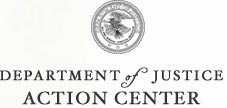


Thank you, Melinda, for your warm introduction and for inviting me to be part of this important summit today. Melinda and her fellow U.S. Attorneys have shown incredible leadership in recent years by shining the spotlight on bullying and harassment in communities across the nation – from Sioux Falls, S.D., to Lexington, Ky., and Detroit, Mich.
I am so privileged to be here with you at the Bay Area Stop Bullying Summit. Melinda, Annemarie and the many others who helped to bring us together here today recognize that we will need every tool in our arsenal to stop bullying and to restore a sense of dignity and safety in our children’s lives. Many of you have been instrumental in efforts to raise awareness about bullying, as well as how to prevent it, how to intervene to stop it, and how to address it once it has occurred. You remind us that bullying is not simply a part of growing up; not a rite of passage that we each must go through. You remind us it’s wrong and that we all share in the responsibility to bring it to an end – root and branch. And many of you are helping to give us the tools we’ll need, the data we’ll reference and the strategies we’ll use as we continue to seek to change the climate in our schools and communities and improve the lives of our children.
In recent years, bullying incidents - many with devastatingly tragic consequences – have increasingly weighed on the conscience of our Nation. Nearly one in three middle and high school students report being bullied, and over half of our children report that they witness bullying in school. For Attorney General Eric Holder and those of us at the Justice Department, addressing bullying and harassment is of paramount importance.
Today, we are brought together in a common mission. To keep our children safe. To protect their dignity. To make our schools places of learning and our playgrounds and school hallways, our Facebook pages and Twitter feeds, points to connect to, not harm, one another.
We at the Justice Department are here to stand with you - students, parents, community leaders, social media companies and local, state, and federal officials – and partner in this mission. For when I visit communities across the country who are working hard to tackle bullying in schools and violence in their neighborhoods, I have seen time and time again that the most successful efforts are in partnership; they are borne from a willingness to break out of everyday silos to solve problems and achieve synergies that could never be realized while working separately. And when it comes to the safety and well-being of our children, the importance of such partnership to achieve success cannot be understated.
Our common mission comes from common experience. Most of us can remember being bullied, harassed, or teased during our childhood. Those experiences from an early age stay with us. The experiences of our children, nieces, nephews, and godchildren, live with us. And far too often – indeed for a majority of our young people – those childhood experiences include exposure to some form of violence, crime, or abuse – from a brief encounter as a witness to being directly attacked.
We know that some of the violence that our children endure is linked to bullying. The research suggests that those who bully are more likely to grow up and abuse their partners, spouses or children. So when we talk about effectively protecting our children from violence in the home, at school or on the streets, we must talk about strategies to prevent and eradicate bullying . Indeed, when we think of how we might prevent the tragedy that occurred at the Sikh Gurdwara in Oak Creek, Wis., we must look to the harassment endured by Sikh-American children in schools. Here in the Bay area, according to a 2010 survey, three quarters of Sikh-American boys reported that they were harassed at school.
Our common mission to stop bullying must start in our schools. It is in our schools that our children learn to live, play and work together. It is in our schools that fear and intolerance can take root; and it is in our schools that respect and compassion can be nurtured.
Yet our common mission must not end in our schools. Because as research and experience tells us, the impact of bullying – and far too often the bullying itself - extends far beyond the schoolhouse doors.
When students who have been bullied are too afraid or traumatized to attend school, they become more likely to drop out or suffer drops in grades and test scores, and bullying becomes an even bigger education challenge.
And when children who have been bullied suffer from anxiety or depression – or like 13 Asian American students at a South Philadelphia high school who were sent to the emergency room after being physically assaulted in December 2009 – bullying becomes a health care challenge.
And when students who have been bullied are not able to fully engage in or complete school, and can’t find jobs because they don’t have the skills employers need, bullying becomes a business challenge.
And when those who bully come into contact with the criminal justice system as convicted defendants, as the research suggests they are more likely to do, bullying becomes a law enforcement challenge.
So in addition to doing what we each can to support our children at our kitchen tables, our community centers, and our places of worship, we at the Justice Department have been actively engaged to prevent and address bullying and harassment in schools.
Together with my colleague at the Department of Education, Russlynn Ali, we in the Civil Rights Division have actively enforced this nation’s civil rights laws to prevent and address harassment in schools.
We are working to amend school policies and provide training to teachers and administrators on how to rid schools of harassment and promote positive school climates in school districts across the country. This includes efforts in Tehachapi, Calif., where 13-year-old Seth Walsh took his own life after suffering verbal, physical and sexual harassment in school for over two years. And it includes our work in Anoka-Hennepin, Minn., where the school district failed to adequately address and remedy a negative climate for gender nonconforming students in its schools. Students in Anoka-Hennepin were afraid to go to school because they were repeatedly harassed with threats, physical violence, and derogatory language. As a result, some stopped attending school for periods of time, dropped out, and even contemplated or attempted suicide.
For students in Tehachapi and Anoka, and other students like them, we have responded to harassment and negative school climates not just with shock and outrage – but with resolve. Our nation’s civil rights laws protect young people who are targeted just because they’re perceived as “different” and require that we ensure that students can have trust in their schools and communities to address bigotry before it becomes fuel for violence. At the Department of Justice and the Department of Education, we have made enforcing those laws a first priority.
In addition to our enforcement work, Attorney General Holder launched the Defending Childhood Initiative, which aims to address violence that kids and youth experience in the home, on the streets, in school or online. The Defending Childhood Initiative seeks to raise the nation’s awareness about the real costs that violence and witnessing violence has in communities, and to promote evidence-based practices to help intervene with kids early.
Part of this effort is a demonstration initiative which provided grants to eight jurisdictions aimed at developing strategic plans for comprehensive, community-based anti-violence efforts, including anti-bullying programs. In Boston, Massachusetts, for example, we’re supporting work to implement state-wide school bullying intervention and prevention legislation. In Grand Forks, North Dakota, we’re funding efforts to expand restorative justice services for youth involved with bullying. And in Portland, Maine, we’re helping to train teachers and other school staff in bullying prevention strategies.
Bullying prevention is also an important issue for the Obama Administration. In March of last year, President Obama, First Lady Michelle Obama and other federal partners welcomed students, parents, and teachers in addition to non-profit leaders, advocates, and policymakers to the White House for a Conference on Bullying Prevention. Also, earlier this year, the White House announced its support for both the Student Non-Discrimination Act and the Safe Schools Improvement Act. These bills will help ensure that all students are safe and healthy and can learn in environments free from discrimination, bullying, and harassment.
Now, notwithstanding these efforts and all of the other progress we’ve made to elevate bullying prevention as an issue of national priority, our work is far from over. We must all continue to stand up, to speak out, and to act in ways both big and small – public and private – to reinforce the message that bullying knows no proper place.
Thanks to the efforts of this administration, and many of you, the chorus is growing stronger across the country. Yesterday, as part of this summit, 3,000 San Francisco public school students screened the film “Bully” and became part of the Million Kids Campaign. That campaign, born out of the strength of a few families and students in the film –the Smalleys, the Longs, Alex, Kirby; the courage of school districts willing to learn and reflect; and the vision of filmmaker Lee Hirsch is being brought to communities across the country in partnership with U.S. Attorney’s offices, school districts, teachers’ unions, big city and small town mayors. It is an example of the work that we can do together.
We must continue our work because t oday, somewhere, there’s a child who will feel the sting of a punch because the clothes he’s wearing aren’t cool; who will believe her difference is a detriment as she eats alone in a crowded school cafeteria; who will skip school to avoid a terrifying confrontation; or will contemplate suicide because nothing seems like it can hurt more than the humiliation she feels right now.
And for each one of those kids – children we know, children we love, children who more than a few of us here were at one time – for each of them we can’t afford to be bystanders. And because of summits like this and commitment like yours, I’m confident that we won’t. Together, we can create atmospheres of tolerance, climates of trust, environments both virtual and real where people young and old can feel welcome to be who they truly are.
Thank you for everything you do on behalf of young people here in the Bay Area and across the nation.




